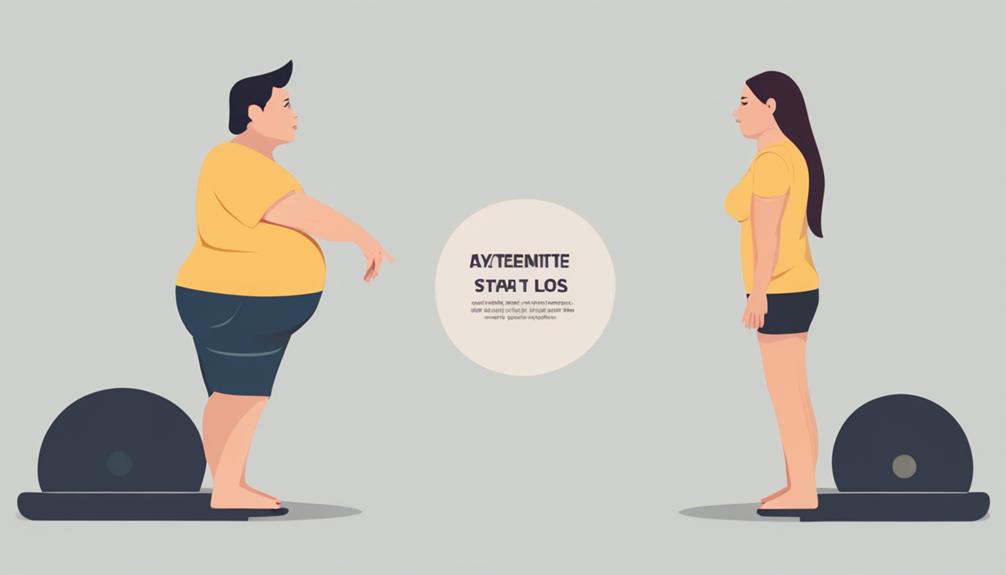Unlock the power of self-hypnosis to elevate your lifestyle with mental clarity, stress reduction, confidence, and productivity. By setting clear intentions and deepening trance states, you can align your subconscious with your goals for lasting transformation. Practice positive affirmations and visualizations to reprogram your mind with optimism and self-assurance. Dive into behavior modification by accessing your subconscious for habitual change and self-awareness. Integrate self-hypnosis into your daily routine to enhance personal growth and mindfulness. Begin your journey toward empowerment and fulfillment through mastering self-hypnosis for a life-changing experience.
Benefits of Self-Hypnosis

When utilized effectively, self-hypnosis offers individuals a powerful tool for enhancing various aspects of their lives. One significant benefit of self-hypnosis is the promotion of mental clarity. By entering a state of deep relaxation and heightened focus, individuals can experience a clearer and more organized thought process, leading to improved decision-making and problem-solving skills.
Moreover, self-hypnosis is a valuable technique for stress reduction. Through guided imagery and positive affirmations, individuals can learn to manage and alleviate stress, promoting overall well-being and mental health. By practicing self-hypnosis regularly, individuals can cultivate a sense of inner peace and resilience in the face of life's challenges.
Additionally, self-hypnosis can provide a confidence boost and enhance focus. By tapping into the subconscious mind, individuals can reprogram limiting beliefs and boost self-esteem, leading to increased confidence in various areas of life.
Furthermore, enhanced focus and concentration can be achieved through self-hypnosis techniques, allowing individuals to improve productivity and performance in their personal and professional endeavors.
Setting Clear Intentions
Setting clear intentions is a fundamental aspect of harnessing the full potential of self-hypnosis for personal growth and transformation. When embarking on the journey of self-hypnosis, it is essential to define your goals clearly. Goal setting provides a roadmap for the subconscious mind to follow, guiding it towards the desired outcomes.
By clearly outlining what you aim to achieve through self-hypnosis, you empower your mind to focus on manifesting those specific objectives. Manifestation techniques play a crucial role in setting clear intentions during self-hypnosis. Techniques such as visualization, affirmations, and positive reinforcement help in programming the subconscious mind to align with your goals.
Visualizing yourself already living the reality you desire, repeating affirmations that reinforce your intentions, and consistently providing positive reinforcement can strengthen the connection between your conscious desires and subconscious beliefs.
Deepening Trance States

To enhance the effectiveness of self-hypnosis practices, delving into deeper trance states is a pivotal aspect that allows for profound subconscious exploration and transformation. Advanced techniques can help individuals reach these deeper levels of trance, facilitating a more profound connection with the subconscious mind.
One such technique involves enhancing focus through relaxation techniques. By employing deep breathing exercises, progressive muscle relaxation, or visualization of calming scenes, individuals can enter a state of heightened focus and receptivity to suggestions during self-hypnosis sessions.
During deep trance states, the subconscious mind becomes more accessible, enabling individuals to explore underlying beliefs, emotions, and patterns that may be influencing their behaviors and choices. This exploration can lead to profound insights and facilitate positive changes in thought processes and behaviors.
Positive Affirmations and Visualizations
Utilizing positive affirmations and visualizations plays a crucial role in enhancing the efficacy of self-hypnosis practices for cultivating positive behavioral changes and mindset shifts. The power of belief is a fundamental aspect of self-hypnosis, where affirmations serve as tools to reinforce positive beliefs within the subconscious mind. By consistently repeating affirmations such as 'I am worthy of success' or 'I attract abundance into my life,' individuals can reprogram their thought patterns, leading to a more optimistic outlook and increased self-confidence.
Visualizations further strengthen the mind-body connection by allowing individuals to mentally rehearse desired outcomes. When combined with self-hypnosis, visualizations can create a powerful synergy that accelerates the manifestation of dreams and goals. Whether envisioning oneself achieving a specific milestone or embodying a desired state of being, visualizations tap into the subconscious mind's ability to influence actions and decisions in alignment with those mental images.
Incorporating positive affirmations and visualizations into self-hypnosis routines paves the way for creating abundance in all areas of life, fostering a mindset geared towards growth and fulfillment.
Self-Hypnosis for Behavior Modification

Exploring the application of self-hypnosis techniques for behavior modification involves harnessing the subconscious mind's potential to instigate lasting changes in thought patterns and actions.
Through subconscious reprogramming, individuals can address deep-rooted behaviors and beliefs that influence their daily choices.
Self-hypnosis facilitates habit formation by allowing individuals to access a heightened state of self-awareness, enabling them to identify triggers and responses that lead to undesired behaviors.
This increased self-awareness fosters self-control, empowering individuals to consciously choose alternative behaviors and thought patterns.
Integrating Self-Hypnosis Into Daily Routine
Incorporating self-hypnosis into one's daily routine can significantly enhance the efficacy of behavior modification efforts and promote lasting lifestyle transformations. By integrating self-hypnosis into daily rituals, individuals can cultivate a deeper sense of mindfulness and intentionality in their practices.
Setting aside specific times each day dedicated to self-hypnosis allows for a consistent and structured approach to personal development.
Mindful practices are essential when incorporating self-hypnosis into daily routines. Before beginning a session, creating a calm and focused environment can help individuals achieve a heightened state of receptiveness to suggestions.
Incorporating self-hypnosis into daily rituals, such as before bedtime or upon waking, can anchor the practice within existing routines, making it easier to maintain over time.
Furthermore, integrating self-hypnosis into daily routines can strengthen the neural pathways associated with desired behavioral changes, reinforcing positive habits and reducing the likelihood of relapse.
Frequently Asked Questions
Can Self-Hypnosis Be Used to Improve Physical Health Conditions?
Self-hypnosis shows promise in mental health and chronic pain management. Studies suggest it can positively impact physical health conditions by reducing stress, anxiety, and pain perception. Consultation with a healthcare provider is recommended for personalized guidance.
Is Self-Hypnosis Effective for Overcoming Specific Phobias?
Self-hypnosis has shown efficacy in fear management by gradually desensitizing individuals to specific phobias. It can enhance self-confidence, offering tools for anxiety relief and stress reduction. Its personalized approach can empower individuals to overcome phobias effectively.
How Can Self-Hypnosis Help in Enhancing Creativity and Focus?
Self-hypnosis can enhance creativity and focus by tapping into the subconscious mind, promoting relaxation, and reducing distractions. This technique boosts productivity by improving problem-solving skills, fostering innovative thinking, and enabling individuals to harness their full cognitive potential.
Are There Any Risks or Side Effects Associated With Self-Hypnosis?
When considering self-hypnosis, it's essential to acknowledge potential dangers and negative outcomes. These may include unintended psychological distress, false memories, or exacerbation of existing mental health conditions. Seeking guidance from a qualified professional is crucial.
Can Self-Hypnosis Be Used to Improve Relationships and Communication Skills?
Self-hypnosis can enhance relationships and communication skills by fostering a self-confidence boost. It aids in conflict resolution through improved emotional intelligence. Enhancing interpersonal connections, it empowers individuals to navigate interactions with empathy and understanding.
Conclusion
In conclusion, mastering self-hypnosis can lead to significant lifestyle transformations.
By enabling individuals to set clear intentions, deepen trance states, utilize positive affirmations and visualizations, and modify behaviors effectively.
By integrating self-hypnosis into their daily routines, individuals can experience improved mental, emotional, and physical well-being.
It is a powerful tool that empowers individuals to take control of their thoughts, beliefs, and actions, ultimately leading to positive changes in their lives.






































